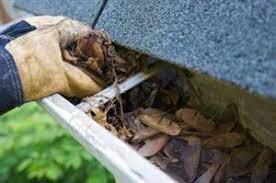
Humidity is among the ‘unseen forces’ that can seriously damage your home.
When the humidity in your home is either too high or too low, it can cause costly damage to your property and trigger various health conditions, such as asthma and allergies, dry skin, and respiratory illnesses.
Read on to learn how humidity impacts your home and how to fight it.
How high humidity causes damage in your home
The following are the most common ways high humidity causes damage to your home:
Toxic mold growth
High humidity (between 62% and 93%), coupled with warm temperatures and a food source, makes an ideal environment for toxic mold and mildew to thrive.
If you notice mold infestations around your HVAC systems, dishwashers, and refrigerators, under sinks and around tubs or faucets in your kitchen or bathroom, and other high-moisture areas, it suggests that you have high levels of humidity in your home.
Rotting furniture and furnishings
Wood is very much vulnerable to the effects of humidity. Specifically, high humidity can cause stains and mold buildup on wood, which eventually leads to rotting and decay. Moisture problems are associated with warping, splitting, cupping, and shrinking of hardwood floors, cabinets, and furniture. Unfortunately, most forms of moisture-induced damage in wood are irreversible.
Damaged carpets
The effects of humidity on carpets are not immediately noticeable, and in most cases, it's too late before homeowners realize it. High humidity levels can cause mold and bacteria buildup, rippling, tough stains, and other forms of damage. It can also attract pests, which can cause harm to your family. If you're using organic carpets such as wool, you should know that they are more prone to high moisture problems.
Paint and wallpaper damage
If you notice chipping wall paint and peeling wallpapers around your house, it's a major sign of high humidity. The issue is particularly more serious on exterior walls. Even worse, moisture can seep through the walls of your home, leading to problems with the structure.
How to manage humidity in your home
They say prevention is better than cure. Check out these ways to easily manage humidity in your home:
Turn on the AC
Turning on the AC especially during hot weather is a great way to dehumidify your space as well as cool it. Air conditioners get rid of moisture in the air as a by-product of cooling.
Install a whole-house dehumidifier
High humidity can be difficult to spot until it starts damaging your home or bringing illnesses to your family. If you live in a very humid area, a whole-house dehumidifier might be a good investment. This device ensures that the humidity in your home is maintained at normal levels. It works by drawing in air and removing moisture and then returning the air back to your home. Most dehumidifiers come with sensors and readers which allow you to keep track of the humidity levels in your house.
Move your house plants
Plants make excellent decorative pieces for homes. However, too many plants can contribute to higher humidity. That said, you want to avoid overcrowding your home with plants especially if you live in a humid region. It’s best to designate a shaded area outside your house to grow healthy and beautiful plants.
Dry your laundry outside
Anything that produces moisture contributes to higher humidity levels. In summer, it's best to hang your clothes outside where they can dry quickly without making your home more humid.
Keep your gutters clean
Clogged gutters are a major source of water leaks in your home. A gutter system helps protect against moisture but only if it is properly aligned and maintained. Apart from regularly cleaning your gutter, you should also check for holes and cracks and have them repaired immediately. Additionally, you have to clear the downspouts and drainpipes from debris. Lastly, ensure that the overhangs are at least 18 inches to prevent rain from seeping into your home's foundation and causing moisture problems.
Schedule your carpet cleaning
Your carpets will greatly benefit from routine cleaning. Since moisture problems in carpets are hard to spot and often occur from underneath, regularly cleaning them is the best way to prevent irreversible damage.
However, if you have damaged carpets already due to high humidity, don't throw them away just yet. There are carpet cleaning services that are specialized in handling damaged carpets, particularly removing mold. Companies with such services can help restore your carpet to its original condition.
Final words
Keeping the humidity inside your home under control is crucial to maintaining the beauty of your property and preventing the onset of health problems. Thankfully, humidity management can be done in so many ways, from installing dehumidifiers to cleaning carpets regularly. I hope this article has given you a starting point to addressing humidity issues in your home and preventing costly damage.

Follow us